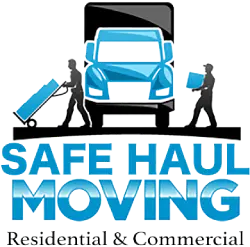
The Best Moving Companies in Walnut Creek
May 20, 2023
Moving Companies in Walnut Creek, CA
May 20, 2023Reputable local movers offer price quotes after conducting an in-person assessment of your items. Inquire with their representative regarding fees such as mileage, stairs and oddly shaped furniture so as to avoid surprises when paying your final invoice.
Donate or sell items you no longer use, while creating an inventory for those you plan on keeping – this helps prevent items being misplaced during transport and helps ensure nothing gets damaged or lost along the way.
1. Commit to Hiring Movers.
Planning for a move requires months of preparation, clearing out, cleaning, creating checklists and packing. This process can be exhausting if left to yourself!
Professional movers can ease the strain of moving and ensure your belongings are safely transported. Furthermore, their insurance cover provides peace of mind against anything going amiss – an advantage over doing it on your own.
Professional movers offer another important benefit of moving services: peace of mind from injury during the move. This is particularly helpful when transporting large items. Experienced movers know how to safely manage them while also getting it done faster for less expense and inconvenience.
2. Schedule Your Move as Soon as Possible.
Make sure to book your move eight weeks ahead, giving yourself time to find a reputable moving company and prepare other aspects related to it such as switching utility bills or notifying USPS of your new address.
Downsize your belongings if possible or hold a garage sale to help reduce expenses. Also inquire about special services offered by local movers such as junk removal or storage solutions; inquire about liability options should items become lost during transit; consider booking weekday moves rather than weekend ones to save money as weekends tend to be more costly due to higher demand; also request references from past clients so you can check these online or via the Better Business Bureau.
3. Take Inventory of Your Belongings.
Making an inventory of your belongings is one of the key steps of moving. Doing this ensures everything arrives intact at its new home, as well as providing valuable evidence should something become lost or damaged during transport.
As you go through each room of your home, create an inventory list. This can be done manually with pen and paper or by using home inventory software. In either case, be sure to take pictures or videos of items with sentimental value while saving any receipts for future reference.
Be sure to include details for every item, including its value and where it belongs in your home. An inventory will prove helpful should an insurance claim need to be filed or other pressing matters arise.
4. Pack Everything Yourself.
If you are moving locally within one state (within 100 miles), packing everything yourself could save money on moving costs. If your packing skills are adequate and no special items require special handling, this might be an economical alternative to hiring professional movers.
Be sure to purchase enough boxes, packing paper, tape, markers and protective materials before beginning a move. Think about purchasing different colored markers or stickers to mark each box according to its room as this will help both you and your movers stay on track throughout.
Always pack a “first night” box containing toiletries, an extra set of clothing and other essentials to ease the transition into your new home. This will make getting settled easier!
5. Hire a Professional To Do the Heavy Lifting.
Moving can be expensive. There are closing costs, rent or mortgage payments, cleaning fees, packing supplies and potentially new furniture to consider. Hiring professional movers may add another expense but can save both time and energy as they will pack more efficiently to protect your belongings than trying to do it on your own.
Make sure to get written cost estimates from each company you consider before selecting one, avoiding those offering low estimates as these could be scam artists. Keep an eye out for red flags such as no website or reviews – these may indicate a mover who holds onto your items hostage or charges you more than they promised, which wouldn’t make for the ideal moving day experience!




